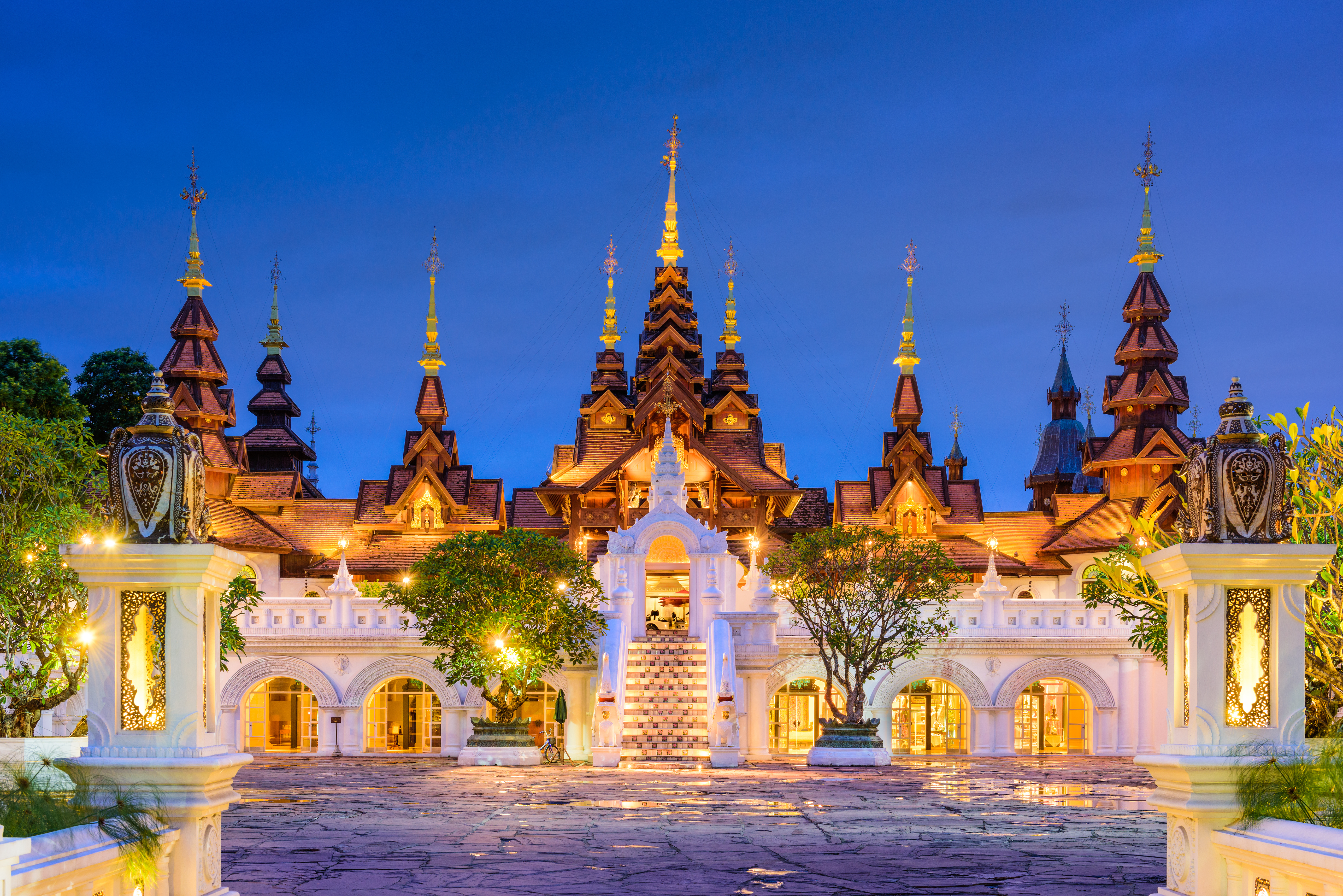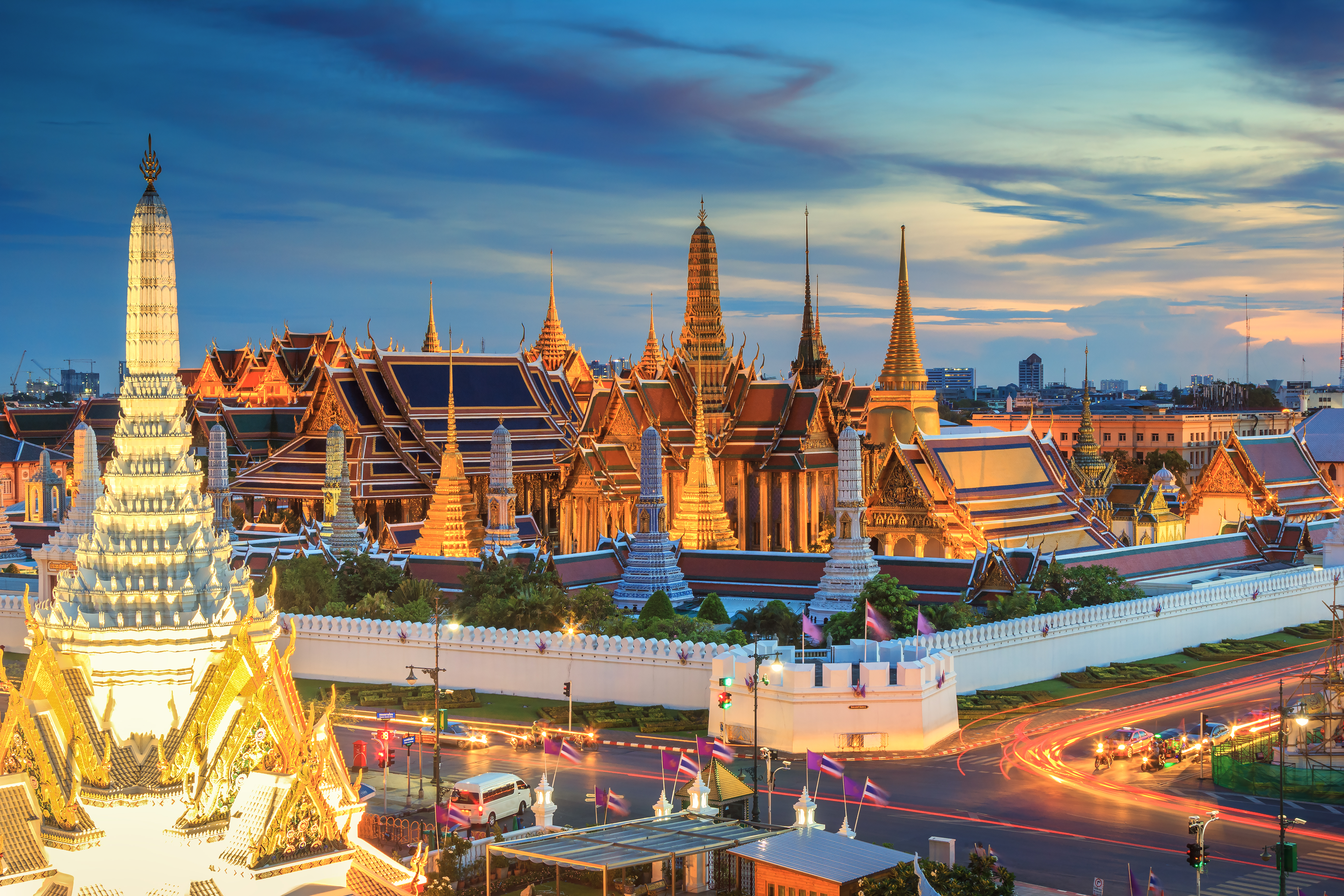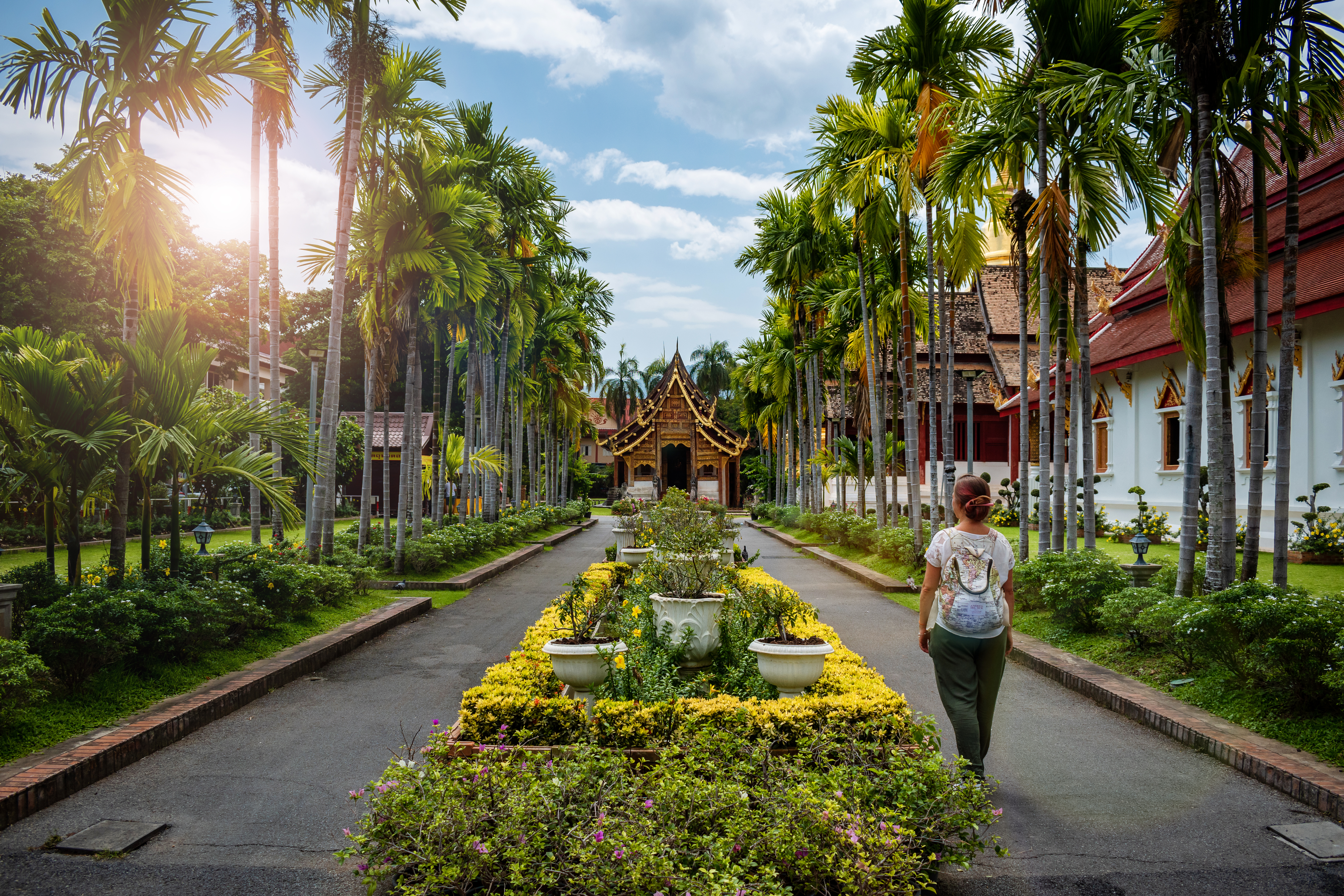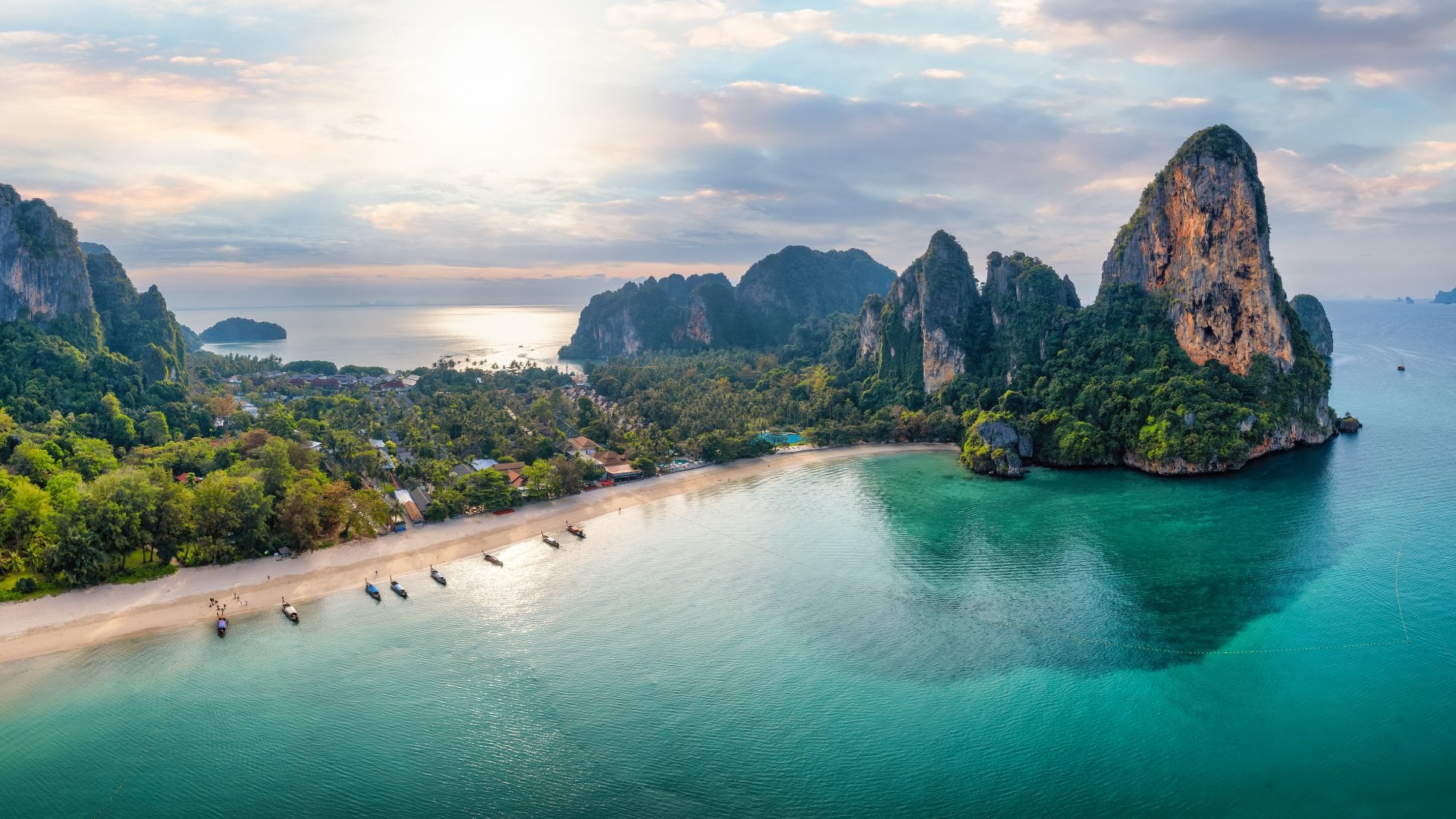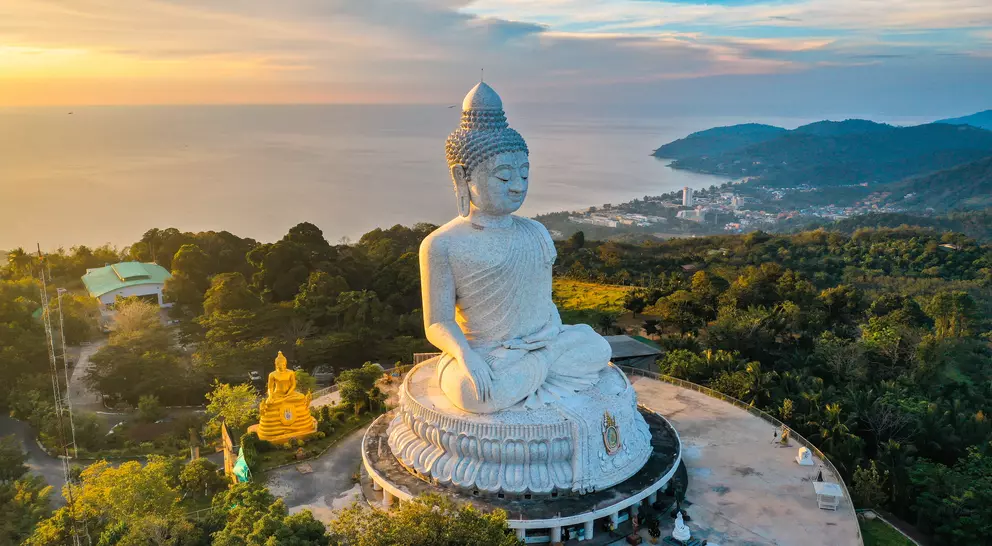Thailand's singular allure for luxury travelers lies in its blend of opulent resorts, its spa and wellness offerings, its vibrant culture, and its stunning natural beauty. From pristine beaches to bustling cityscapes to serene jungle retreats, luxury travelers can indulge in world-class accommodations, personalized service, and unique activities amid the rich tapestry of Thai traditions and landscapes.
Discover Tailor-Made Thailand Vacations
From floating markets to ancient ruins, every trip to Thailand reveals its unique cultural wonders
There are many reasons why Thailand is one of Asia’s most popular destinations. There are the vibrant cities, world-famous cuisine, and majestic temples. There’s the breathtaking diversity of its landscapes, which include dense jungle, beautiful beaches, and serene mountains. And there’s the warm, sincere hospitality you’d expect in a nation known as the Land of Smiles.
Featured Highlights
- Seeing Bangkok from the water on a cruise through its historic klongs
- Exploring the capital’s Grand Palace or Wat Pho complexes with your own private guide
- Preparing an authentic Thai feast with fresh market finds during a Chiang Mai cooking class
- Snorkelling the crystal-clear waters and kayaking to hidden lagoons off beautiful Koh Samui
- Enjoying a seafood feast and afternoon of serenity on a private island off Phuket
Featured Thailand Trip Ideas
Thailand is a perfect destination for globetrotters who desire adventure, stunning beaches, and gorgeous yet shockingly-affordable destinations.From the Wat Pho complex in Bangkok and ancient ruins of Ayutthaya to the markets and healing spas in and around Chiang Mai, Thailand’s attractions offer something for everyone and won’t disappoint. Sun and surf worshippers will wonder at the natural beauty of such coastal idylls as Krabi and Phuket, jam-packed with gorgeous resorts. Foodies will want to indulge as many culinary options, from world-class restaurants to delicious street food, as they can.
Read More
Classic Thailand: Bangkok, Chiang Mai & Phuket
Phuket, Chiang Mai, Bangkok, and The Grand PalaceBest of Southern Thailand: Beaches, Jungle & Coastline
Phuket, Phi Phi Island, Krabi, and Khao LakThailand Lotus Escape: Bangkok, Koh Samui & Phuket
Phuket, Koh Samui, Bangkok, and The Grand PalaceDeluxe Thailand: Bangkok, Chiang Mai & Phuket
Phuket, Chiang Mai, Bangkok, and The Grand PalaceThe Spirit of Thailand: A Women's Journey
Phuket, Chiang Mai, Chiang Rai, Wat Rong Khun Temple, Bangkok, and The Grand PalaceThailand Island Hopper: Phuket, Phi Phi & Krabi
Krabi, Phi Phi Island, and PhuketDon't see the
perfect trip idea?
Request a custom quote.
Turn your travel dreams into reality with Goway. Our customized vacations take travellers to all corners of the world.
What do Goway's travellers say?

Get to know Thailand before you go.
Best Time To Visit
With varying seasons, Thailand offers different types of weather throughout the year. Understanding the best time to visit Thailand will go a long way toward crafting the perfect adventure.
November through February is Thailand’s cooler, drier season, a time when most tourists descend on the country. Consequently, crowds are larger and prices tend to be higher. To kick off this peak season, Thais celebrate Loi Krathong, a Buddhist festival marking the full moon of November. Locals light lanterns or candles on makeshift rafts and float them down waterways to wash their troubles away and start the season anew.
Alternatively, March through April is very hot and humid, but also when Thais celebrate Songkran (the Thai New Year) with festivals and water fights.
May through October sees the country enter the monsoon season with almost daily bursts of rain. If they can handle the intermittent downpours, off-season travellers will be rewarded with bargains and scant crowds. While some tourist venues may be shuttered during this quieter time, many are not. A Goway travel expert can help you plan accordingly.
To start crafting your perfect Thailand getaway, consult one of our Destination Specialists today.
What do the experts say?
Thailand is a friendly destination with fun & warm people, great food, and impressive cultural and beach experiences. Simply wandering neighbourhoods, visiting temples, shops & viewpoints, and eating at local restaurants are what I enjoy most when visiting Thailand. The south of Thailand is a special location with beautiful scenery and a seemingly laid back lifestyle, so visiting this area is always a special and memorable experience.
The experience of travelling from island to island on longtail boats in the south of Thailand is something that still resonates with me after many years.
For families, visiting a sustainable community in Koh Yao Yai can bring the trip to life with local interaction. For honeymooners, personalizing memorable experiences with special menus, in-room dining and more can really elevate the experience for Goway guests.
All the people that I met at the hotel, restaurants, and parks were always smiling at me. I can feel that they are grateful to all international tourists. A Thai smile inspires me most and makes me want to revisit.
Places To Go
Handcrafted journeys to our most popular places to visit in Thailand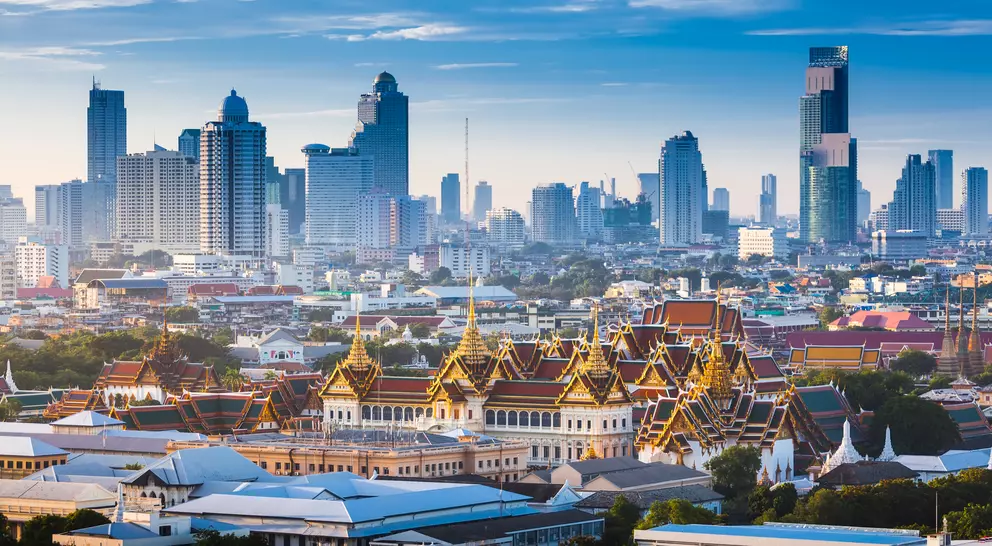
Bangkok
Bangkok is the capital and largest city in Thailand. One of Asia’s most cosmopolitan cities,...
Bangkok is the capital and largest city in Thailand. One of Asia’s most cosmopolitan cities, Bangkok features modern buildings with awe-inspiring architecture, magnificent temples and palaces, canals...

Chiang Mai
The city of Chiang Mai is located in the northern region of Thailand, approximately 700 km away...
The city of Chiang Mai is located in the northern region of Thailand, approximately 700 km away from Bangkok. Located in Chiang Mai Province, among the highest mountains in Thailand, Chiang Mai sits...
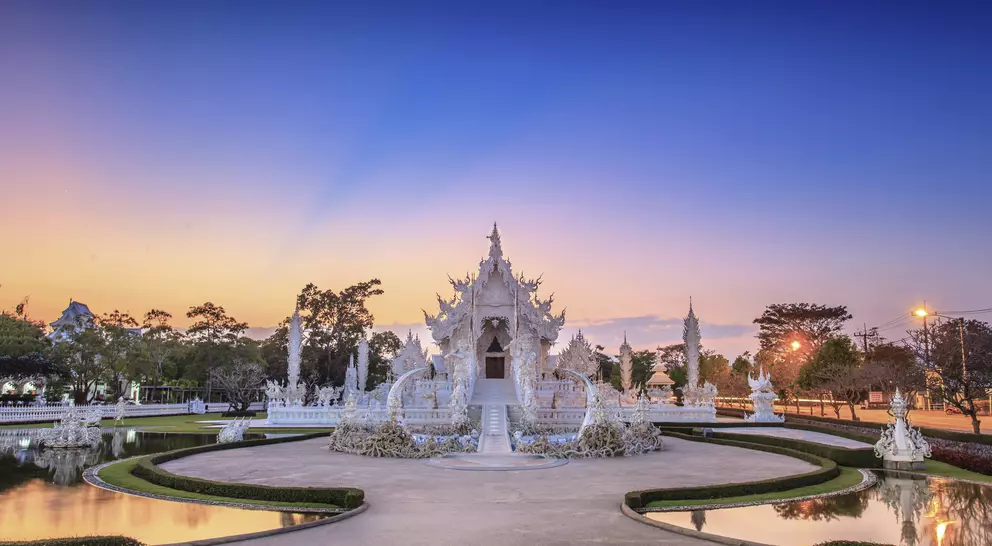
Chiang Rai
Chiang Rai is located north of Chiang Mai and is a good centre from which to visit the Golden...
Chiang Rai is located north of Chiang Mai and is a good centre from which to visit the Golden Triangle border region where Thailand, Myanmar and Laos merge. Although not particularly large and...
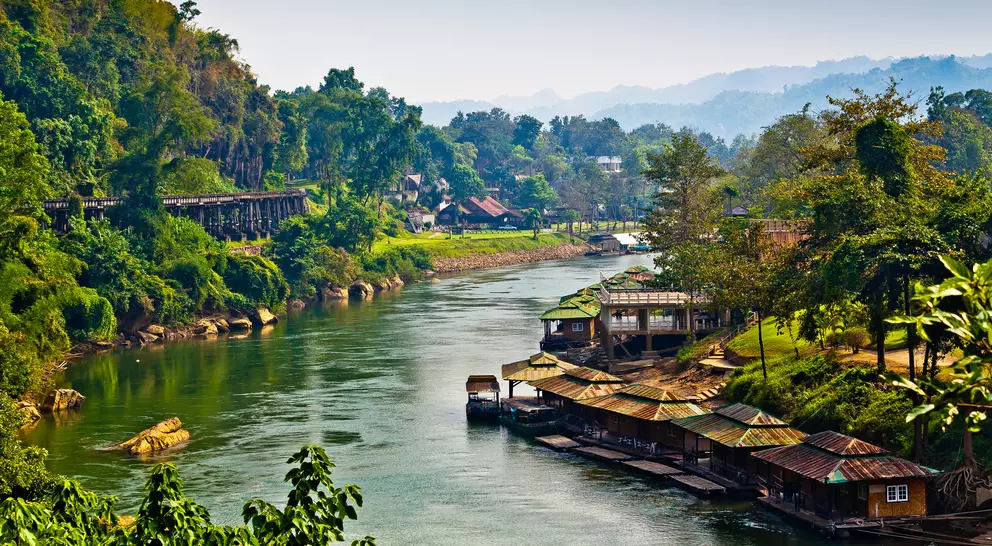
River Kwai
The River Kwai, or Khwae Noi as it’s more correctly known, is located in Western Thailand. Near but...
The River Kwai, or Khwae Noi as it’s more correctly known, is located in Western Thailand. Near but not crossing over the border of Myanmar, the river begins at the confluence of the Ranti, Songkalia...

Koh Samui
Koh Samui is an island in the province of Surat Thani, situated in the Gulf of Thailand. Located...
Koh Samui is an island in the province of Surat Thani, situated in the Gulf of Thailand. Located 700 km south of Bangkok, the island is 80kms from the eastern coastline of South Thailand.With an area...
Travel Styles
Explore Thailand by Travel TypeFrequently Asked Questions
What makes Thailand a unique destination for luxury travelers?
How does Thailand’s geography influence its diverse travel experiences?
With such a diverse geography, Thailand offers a wide range of travel experiences, from bustling cities and pristine coasts to dense rainforests and dramatic mountain slopes.
How many days do I need to visit Thailand?
You will need a minimum of seven to 10 days to take in primary sites such as Bangkok, Chiang Mai and Phuket, though two weeks is ideal for a first-time visitor wanting to experience both the northern and southern parts of the country without rushing.
What are the most iconic cultural landmarks to visit in Thailand?
Some of Thailand’s most iconic cultural landmarks include the Grand Palace complex in Bangkok and the ruins at Ayutthaya, as well as the UNESCO-recognized temples and monuments at Sukhothai, a small northern city considered the cradle of Thai art, architecture and language.
What are the must-see natural attractions in Thailand?
Don't miss such natural attractions in Thailand as the mountains and lush rainforests of the north, the pristine beaches of the south, and the iconic islands of Andaman Bay.
What should I know before traveling to Thailand?
Before traveling to Thailand, ensure that your passport has six months' validity, understand visa requirements, get recommended vaccinations and travel insurance, and acquire some local cash (Thai baht). In addition, brush up on local culture by understanding the importance of dressing modestly, removing shoes indoors, and respecting Thailand’s monarchy. For more details, consult our guide to Things to Know Before You Go.
Unlock more by subscribing to our newsletter.
With our newsletter, you’ll get access to regular communications that inspire you and help you explore the world your way.
